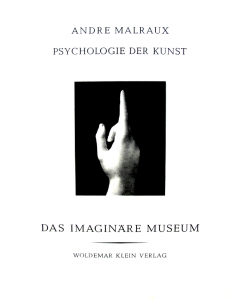Transmediale Sprint Started
 Today is the first full day of a very fascinating Book Sprint. We are working to produce a short text (12,000) words but also generating a theory at the same time. It’s certainly adding items to my Book Sprint toolbox. The article is to be written by four digital arts theorists and is focused on generating a text focused on the intersection of Malrauxs work on the Imaginary Museum as it intersects with the New Aesthetic.
Today is the first full day of a very fascinating Book Sprint. We are working to produce a short text (12,000) words but also generating a theory at the same time. It’s certainly adding items to my Book Sprint toolbox. The article is to be written by four digital arts theorists and is focused on generating a text focused on the intersection of Malrauxs work on the Imaginary Museum as it intersects with the New Aesthetic.
My experience before with sprints of this nature is that you need to allow enough time for the idea to come out of the group but not enough time for the group to get stressed with the content-as-moving-target. Its a difficult balance and in this case facilitation really is about removing yourself from the process and identifying that critical point to pin the group down to a more concrete stage. It is all ‘on the fly’ of course, and I am learning a lot with each Book Sprint and learning what works and what doesn’t every time. What is fantastic about doing a sprint like this one is that you go to the outer edge and learn things that can be utilised in other sprints. Not every Book Sprint is going to also include a playful theory-jam but there will be some that need complex ideas and half formed constructions to be made concrete and the experience now will also help with those.
Each Book Sprint is an end in itself of course, and I am enjoying the very fascinating conversations. Two of the participants (David Berry and Michael Dieter) have been in a sprint before with me in Rotterdam (Netherlands) and I am also very interested in how they are more used to diving into the unknown.
Update Day 4: It has been a very interesting Book Sprint.We started in an unusual and broken way, with several people arriving at different times. It disrupted the start and I learned a lot from this – namely, the Book Sprint process has to be instantiated in the right way. That is a very big lesson to me, to not disregard the process, no matter what the circumstances. At the beginning the right mood and expectations need to be set which is the usual way I start things. This time I did not do it because of the disruptive, staggered start – that was a mistake. We had to ‘reset’ the process 2 days later and it came right. On the other hand, what has been really great about this particular sprint is for the first time I have seen the sprint used to conjure up theory. This really has been a product of the on-the-fly remixing of thoughts through across-the-table discussions and through reading and commenting on texts as they are being produced. Its interesting to see that this has largely taken place because Michael Dieter and David Berry have been involved in a sprint before and are open and eager to do this although Baruch Gottlieb and Lioudmila Voropai soon found there way into this process.


